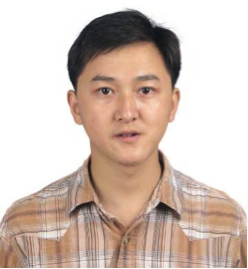The Department of Biomedical Informatics
presents
Liangjia Zhu, PhD

Dr. Liangjia Zhu is a Postdoctoral Fellow in the Department of Computer Science at Stony Brook University. He received his Ph.D. degree in Electrical Engineering from the Georgia Institute of Technology in 2013. His research interests include medical image analysis, system and control, biological network analysis, and computer vision.
“System, Stability and Robustness- Image Segmentation & Cancer Network Analysis”
Monday March 30, 2015
2:00 pm - 3:00 pm
Laufer Center, Lecture Hall 101
Contact the Department of Biomedical Informatics at (631) 444-8459 with any questions regarding this event.
Bio
Dr. Liangjia Zhu is a Postdoctoral Fellow in the Department of Computer Science at Stony Brook University. He received his Ph.D. degree in Electrical Engineering from the Georgia Institute of Technology in 2013. His research interests include medical image analysis, system and control, biological network analysis, and computer vision.
Abstract
The advances of data acquisition techniques have significantly enhanced our ability to access and explore new frontiers. What falls behind these technology improvements is how to investigate new problems in a more systematical manner. In this talk, I will show how to utilize the concepts and techniques from the theory of systems to study two topics in biomedical computings, that is, image segmentation and cancer network analysis. To begin with, I will give a brief introduction to system stability and robustness. Then, I will demonstrate how to utilize the system stabilization techniques to design an image segmentation system. I will show study cases of segmenting images for cardiovascular, pathology, and microbiology; with a resolution from millimeter, micrometer, to nanometer. Finally, I will introduce how to study cancer networks from the perspective of system robustness. In particular, I will show the underlying relations between system robustness, entropy, and Ricci curvature, which lead to a very stable way of computing the robustness of cancer networks. I will present our results on both metabolic and transcriptional networks.

